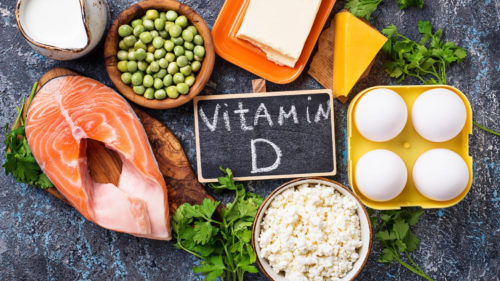Vitamin D

Mrs. Chandra is your average 65 year old female who lives in Gurugram, a suburb of Delhi NCR. She leads a healthy lifestyle exercising regularly and eating right. A few weeks ago, she felt a nagging pain in her foot; she didn’t pay much heed. When the pain got worse, she went to her doctor who suggested an X-Ray. It turned out she had fractured her toe. Later tests showed she had very weak bones and very low levels of Vitamin D in her body.
Vitamin D, also known as the sunshine vitamin, is found to be deficient in a staggering percentage of the Indian population. According to some studies, 8 out of 10 Indians suffer from Vitamin D deficiency.
Vitamin D and Sunshine
Vitamins and minerals are special nutrients that are required in our diet to keep various systems in our body in check. They cannot be made in our body and are essential components of a balanced diet. Vitamin D, however, is the only vitamin that is produced in the body through a specific biological mechanism.
When we go out in the sun and our outer skin gets exposed to sunlight, our bodies initiate Vitmain D production. The UV-B rays of the sun, on coming in contact with our skin, set off a series of complex chemical reactions that involve the skin, kidney and liver; this leads to the formation of 1, 25 di – Hydroxy Vitamin D3.
Vitamin D In Our Diets
In addition, Vitamin D can be obtained through diet too; fish, liver, egg yolk, fruit juices and cereals being some of the important dietary sources. This nutrient is crucial for a wide range of biological processes: skeletal and muscular functioning, immunity, regulation of blood pressure, cardiovascular system, respiratory system, neuropsychiatric functioning, all require vitamin D to run at optimal levels. According to some studies, it even reduces the risk of cancer.
Good For Bones
Vitamin D is needed by people of all ages: adults, expecting women, elderly and especially children. In children, lack of Vitamin D is known to cause bone deformities which, in turn, severely affect posture and gait (trouble with walking); this condition is called Rickets.
Conclusion
Exposing your skin to sunlight for 30 – 45 minutes, a few days a week, is considered sufficient for the body to produce the required amounts of Vitmain D. Try avoiding sunscreens as they blocks the UV rays from reaching the skin and hinder the Vitamin D production. The darker your skin, the more sunlight you need since the melanocytes, or the dark pigments, act as a natural sun screen.
Vitamin D is an important nutrient for the body and its abundance in the body significantly boosts our overall health. Instead of hay, make some Vitamin D while the sun shines!
Disclaimer: This content including advice provides generic information only. It is in no way a substitute for qualified medical opinion. Always consult a specialist or your own doctor for more information.
